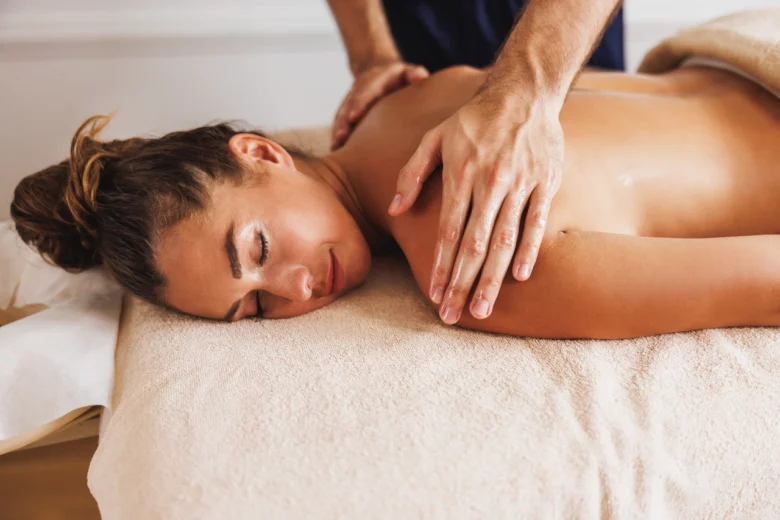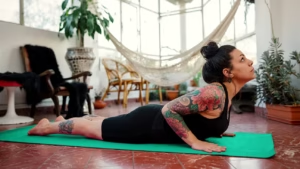The Power of Relaxation: Proven Stress Relief Methods
Understanding the Need for Relaxation
Many people underestimate how much stress affects their health. Persistent tension can lead to headaches, poor sleep, digestive problems, and a weakened immune system. In today’s fast-paced world, we often push through the day without taking the time to rest. The good news is that relaxation is not just a luxury—it’s a vital part of keeping both your body and mind healthy. This article will guide you through simple, proven methods to ease stress, recharge your energy, and improve your overall well-being.
1. Deep Breathing to Calm Your Mind
When you feel tense, your breathing often becomes shallow and rapid. Deep breathing can reverse that, helping your body switch from a stressed state to a relaxed one. One simple method is the 4-7-8 technique: inhale for 4 seconds, hold for 7 seconds, and exhale slowly for 8 seconds. Repeat this for a few minutes to slow your heart rate and ease muscle tension.
You can practice deep breathing anywhere—sitting at your desk, lying in bed, or during a break at work. The best part is that you don’t need any equipment. Just a few minutes of focused breathing each day can help you manage stress before it overwhelms you.
2. Gentle Stretching to Release Tension
Stress often shows up as tight shoulders, a stiff neck, or a sore back. Gentle stretching can release this built-up tension and improve blood flow. Start with simple moves like rolling your shoulders, bending side-to-side, or reaching your arms overhead.
You don’t have to commit to a full workout. Even 5–10 minutes of light stretching in the morning or evening can make a big difference. Try combining your stretches with slow breathing for a deeper sense of calm. This combination not only helps your muscles but also signals your brain to relax.
3. Mindfulness and Meditation for Mental Clarity
Mindfulness is the practice of focusing on the present moment without judgment. It can reduce overthinking, calm your nervous system, and help you see problems more clearly. To start, find a quiet spot, close your eyes, and pay attention to your breathing. If your mind wanders, gently bring it back to the breath.
Even five minutes a day can be beneficial. You can use free meditation apps or guided videos to help you stay focused. Over time, mindfulness can become a natural habit, making it easier to handle stressful situations with a clear mind.
4. Progressive Muscle Relaxation for Full-Body Relief
This technique involves tensing and then relaxing different muscle groups one at a time. Start at your toes—tense them for a few seconds, then release. Move up through your legs, stomach, shoulders, and face.
Progressive muscle relaxation works well because it makes you aware of where you’re holding tension. By intentionally letting go, you teach your body how it feels to be relaxed. Many people find it especially helpful before bed to promote deeper sleep.
5. Engaging in a Creative Hobby
Doing something creative—whether it’s painting, gardening, cooking, or playing music—can pull your focus away from stress and into the present moment. Creative activities give your brain a break from constant problem-solving and allow it to reset.
You don’t need to be an expert to benefit. The point is to enjoy the process, not to create a masterpiece. Setting aside even 20 minutes a few times a week for a creative outlet can refresh your mind and boost your mood.
6. Spending Time in Nature
Being outdoors can have a powerful calming effect. The sights, sounds, and smells of nature reduce stress hormones and improve mental clarity. Walking in a park, sitting in your garden, or simply opening your window to let in fresh air can help.
If you can, aim for at least 20 minutes a day outside. Activities like hiking, cycling, or just sitting under a tree can reconnect you with a slower, more peaceful rhythm. Nature also offers gentle movement, sunlight, and fresh oxygen—all of which support relaxation.
7. Listening to Soothing Music
Music has the power to influence mood and emotions. Slow, gentle tunes can lower heart rate and blood pressure, while upbeat music can lift your energy and mood. Create a playlist of songs that help you unwind, and play it during your commute, while cooking, or before bed.
Some people find instrumental music or natural sounds—like rainfall or ocean waves—especially calming. Experiment with different styles until you discover what works best for you. This is a simple, affordable way to bring a sense of peace into your daily routine.
8. Practicing Gratitude
Stress often makes us focus on what’s going wrong. Gratitude shifts our attention to what’s going right. Try writing down three things you’re thankful for each day. These don’t have to be big—simple moments like a good meal, a kind word, or a sunny afternoon count.
Keeping a gratitude journal can help you build a more positive mindset over time. By training your brain to notice the good, you reduce the mental space stress occupies.
9. How to Stay Motivated with Relaxation Practices
Building relaxation into your routine can be challenging at first, especially when life feels busy. Start small—choose one or two methods from this list and commit to them for a week. Track your progress in a notebook or app to see how your stress levels change.
You can also find an accountability partner, such as a friend or family member, to practice relaxation together. Set gentle reminders on your phone or calendar to ensure you don’t skip your self-care time. Reward yourself with something enjoyable—like a favorite snack or a short leisure activity—when you stick to your routine.
Final Thoughts
Relaxation is not an escape from life’s responsibilities—it’s a way to handle them more effectively. By making time for proven stress relief methods, you protect your physical and mental health. You don’t have to change everything at once; start with small, consistent steps and build from there. With regular practice, you’ll notice you feel calmer, think more clearly, and handle challenges with greater ease.




